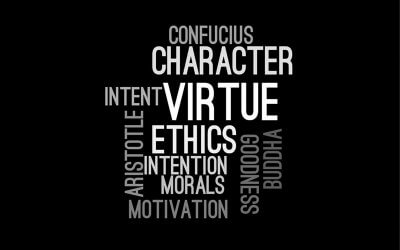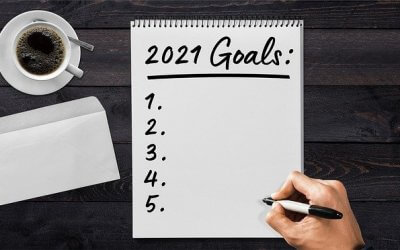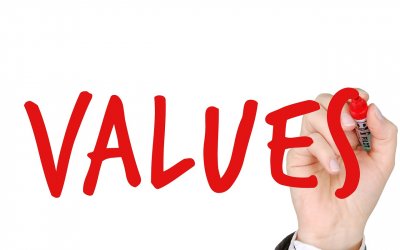Discover how understanding the limitations of averages and embracing probabilistic thinking can improve decision-making and risk management in business.

After the Lockdown, Divorce?
As I predicted, following a stay at home, many couples will realize that they don’t like their spouses, which, when the restrictions are over, will seek a divorce. As China opens up, the number of divorce applications is hitting an all-time high. The Chinese city of Xi’an reopened its Marriage Registration offices on March 1, and by March 4 all appointments were taken through March 18.
According to Esther Perel, “The quality of your life ultimately depends on the quality of your relationships . . . which are basically a reflection of your sense of decency, your ability to think of others, your generosity.” Therefore at times like this, the quality of our relationships takes on greater meaning. Having been through the big “D”, I hope that none of you will experience it, but thought that the following might help.
A tragedy, or crisis, is an accelerant for relationships. If the relationship wasn’t healthy, it is like to deteriorate under the stress of COVID-19 and lockdown. Being trapped in an enclosed space with someone for an extended period could lead to disdain – especially if you were having problems before it started.
Being cooped up and experiencing the monotony and boredom, repetition, lack of variety, the feelings of anxiety and fear, and the social proximity, put us on a par with astronauts on the space station and others in isolated extreme environments according to Nathan Smith, at Manchester University. However, while astronauts are trained to deal with this environment and its challenges, we are unprepared – both mentally and in our supply of toilet paper. As a result, we are likely to feel a similar amount of fear as an astronaut going into space, but we need to adapt much more quickly to deal with it. “Preparedness is a big contributor to whether things like this are a success,” says Smith.
Furthermore, Sarita Robinson, a cognitive psychology lecturer at Central Lancashire, says, “If you’re with [your isolation partner] for a long enough time, things will eventually get too close.” However, she noted, “You get social support from the people that you’re close to. They provide you with a social buffer, and if you’re worried or anxious or upset, they help you deal with it.” So, if you’re down, lean on your partner for support, but be aware that complaining too much puts additional stress on the relationship. Also, a person’s mood is contagious.
Different people respond to partner support in different ways. Research has shown that men find isolation with a partner quite lovely, and women go a little nuts.
John Gottman, a psychology researcher, has defined certain behaviors, the “Four Horsemen of the Apocalypse,” that lead to the dissolution of romantic relationships, namely:
- Criticism. An attack on your partner’s character, as distinct from offering a critique or voicing a specific complaint. While you might not saying anything about your partner’s flaws to avoid conflict but bottled up, anger and frustration will turn to resentment.
- Contempt. An insult to your partner. People might do this verbally using sarcasm, or only by rolling their eyes.
- Defensiveness. A counterattack, most often in response to perceived criticism. Such a strategy is used to people when they are feeling victimized. They assign their partner the responsibility of causing them pain.
- Stonewalling. Elaborate maneuvers to avoid interacting with a partner. People who stonewall will often stop communicating with their partner, except for negative non-verbal gestures.
In addition to avoiding the Four Horsemen of the Apocalypse, here are some other things to consider.
-
Grief. The is “Grief” from what is happening and “Anticipatory Grief” from what we know is coming. Both are grief and are affecting us and those with whom we are isolated. We all know that there are five stages of grief: denial, anger, bargaining, depression, and acceptance. However, our response to this is not always linear, and we can move back and forth through these stages. For many, they are still in denial; others have moved to anger, and those in suffering in New York, Detroit, and Chicago maybe somewhere among the last three. Those in the bargaining stage are organizing themselves in practicalities, rather than acknowledging our vulnerabilities. Thus many are working hard, but productivity is not increasing in proportion.
-
Stress. At the moment, we are suffering acute stress from either economic anxiety (loss of income) or health care stress (loved ones are sick) or a combination of both. We all have different styles of coping with stress. To maintain our relationships, we need to acknowledge our anxiety and that of our partners. Be patient, and be kind. We may look like our usual selves, but realize that underneath we all are stressed and scared. Because you are so close to those close to you, acknowledge the positive in them. In thanking them and showing gratitude, we need to focus on the person more than the task. Finally, monitor the balance between positive and negative interactions with your partner. Aim for a ratio of 5:1
-
Personal space. One of the best ways to manage conflict is to physically remove yourself from the presence of the person who’s annoying you. Thus find a personal space that you can retreat to that has a door. A couple on the Diamond Princess suggested a closet. Also, there is that time when you need to withdraw from everyone. In that case, retreat, but before doing so, articulate your feelings, make a commitment to return, withdraw, and return.
-
Emotional Issues. Don’t rationalize away emotional issues or pretend it is business as usual, acknowledge them. If you don’t you don’t provide a place for acceptance, and this can lead to worse behaviors. Listen to your partner’s feelings and validate their response to these stresses as being OK. Become defensive and attacking your partner for how they feel or act will not help. Reassure your partner and your children of their safety. Have a conversation about what security means and how you plan to keep yourselves and other members the household safe. In the US, where everything is about “self,” COVID-19 is showing us that we cannot survive on our own. An emotional connection is essential for survival and mental wellness. Don’t ignore your children. Talk to them about it and acknowledge it because they know it not typical.
-
Conflicts. Some partners have come up with a code phrase, i.e., “Cuban Missile Crisis” so that they can call a truce on little arguments without actually having to apologize or be kind to each other. Choose one that works for you, but it is helpful to have one that is a reminder things could be a lot worse.
-
Routine. You need to have a fixed routine in this “new” world. That routine will include work, but should also allow for family commitments at home, especially some couple time. Also, the schedule must consist of time apart. Please take it in turns looking after the kids or other family members at home, and allow each additional time to work on individual hobbies. As part of this routine, you can practice healthier h
abits, i.e., eating well, sleeping, exercising, practicing mindfulness, meditation, or learning a new skill. These things improve mental well-being and can help build intimacy if done together. -
Rituals and After. During this time, create new routines. Many have noted that as a result of the lockdown, we are improving our relationships with our second-degree connections. It is a great time to have a virtual happy hour, virtual book club meetings, and virtual dinners. Such events create more significant relationships with those people too. Finally, make plans with your partner for when the crisis is over. While you need to accept reality, it is essential to recognize that the situation is not permanent. Planning something fun or different can help keep you positive and motivated to stay safe.
Hopefully, you will not be singing,
I’m goin’ through the Big D and don’t mean Dallas.
I can’t believe what the judge had to tell us.
I got the jeep and she got the palace.
Songwriters: Ronnie Rogers, Mark Wright, and my colleague from another time, Jon Scott Wright.
Recent Posts
The “Flaw of Averages” Causes Havoc for Businesses
What is Your Strategy, In a Sentence?
If you are banking on the vaccine returning us all to “normal” quite quickly, in the famous words of Dr. Akande, “Hope is not a strategy.” Your organization should be preparing a well-defined strategy for 2021 and beyond. Once you have this strategy, the ultimate question: can you clearly articulate it in one sentence? Distilling your strategy into a single sentence is a powerful tool, both for your legacy and your team effectiveness. Not sure where to start? I offer a plug-in formula to set up your strategy sentence.
Character Matters
“It’s easier to hold to your principles 100% of the time than it is to hold to them 98% of the time.” — Clayton Christiansen. I have often written about the importance of a company’s Core Values. That’s because no matter what words you may have chosen as values, your organization’s Core Values are on display in how leadership and employees actually behave. As I’ve said before, how you have acted in the last twelve months will define your career for the next decade. Your character, and your company’s character, matters.
New Year’s Resolutions, Once More Unto the Breach
The holidays have been even quieter than normal, which has given me plenty of time to reflect on my New Year’s resolutions. Looking at 2021, I decided to use a completely new approach to lay out my goals. The result of my new approach? A highly-detailed, accountable, actually achievable plan for the next year (I think). Wondering what this process looks like?
To Vaccinate or Not to Vaccinate, that is the Question
What do your employees, peers, and leadership team think of the COVID-19 vaccine? Will you require the vaccine, or will you let employees make individual decisions? As a leader, you need to steer the discussion about vaccines in your organization with your Core Values in mind. No matter what strategy your organization takes, the most important factor is going to be how you communicate your decision.
3 Ways You Could be Undermining Your Core Values
Can you answer “Why does your organization exist? What are your core values?” Great. Now, would your latest entry-level employee give a similar answer? How about someone who has been at your company for a year? Your core values give your organization a guiding mission. Many organizations pay this idea lip service, but their true commitment to their core values was tested this year. As we close out 2020, there’s no better time to examine how your organization is approaching your core values.
Are You Prepared for 2021 With Enough Cash?
Companies don’t go bankrupt because they lose money; rather, they run out of cash. Where are we, heading into 2021? First, you can expect your cash to get tighter as we weather the current economic slowdown. Then, with a vaccine on the horizon, you will need to be positioned for growth. If you don’t have the cash you need, have you looked at how you can generate the cash internally? More on how to improve your cash conversion cycle…
Tony Hsieh, a Corporate Culture Icon, RIP
In his work as Zappos CEO and elsewhere, Tony Hsieh believed, and proved, that culture is the most important thing in an organization. According to Hsieh, if you get the culture right, the rest will take of itself. How did Zappos do it? You can take a look at everything from the company’s interview questions, to “The Offer” to leave a position as a new hire. Hsieh believed that a company’s brand is just a reflection of the culture, and his legacy is felt across so many industries.
CEO, Try Thy Hiring System
How does your company hire? I’ve seen the good, the bad, and the surprisingly ugly hiring processes in my career. From the HR email mix-ups to the interviewer watching the World Series while I responded to his questions, I’ve learned that you can tell a lot about an organization simply by examining the hiring experience. Are you chasing away the kind of people you need at your company?
What is Leadership?
What is it, exactly, that great leaders do? There are plenty of overused adages about “leadership” in business. It’s worth examining the tropes around leadership, plus the traits of the leaders who actually leave a mark. Great leaders are forged through adversity, and they leave a legacy. What does that look like in your organization?










